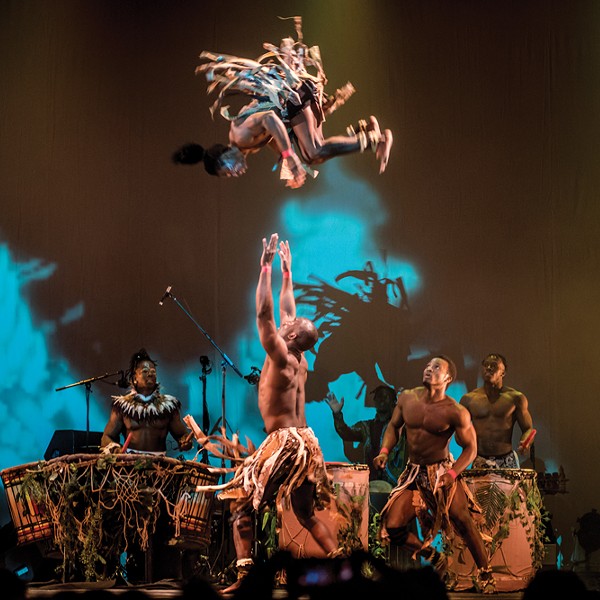The increasing of decibels is a device long found in all genres of music. And, arguably, it's rock 'n' roll, above all others, that depends on sheer volume to get its message across—a concept that indie icons Dinosaur Jr. have been literally building their rock on since 1984. Which is not to say the band—guitarist and singer J Mascis, bassist and singer Lou Barlow, and drummer Murph—embraces aural intensity at the expense of melody; their brand of "ear-bleeding country" is also steeped in pop hooks. Originally known as, simply, Dinosaur (a lawsuit by a similarly named outfit saw the suffix added), the trio released three albums that include 1987's essential You're Living All Over Me and 1988's Bug before Barlow exited to form Sebadoh and Mascis led latter editions of the group. Give a Glimpse of What Yer Not is the original lineup's fourth album since their 2005 reunion. Dinosaur Jr. will perform at Mass MoCA in North Adams, Massachusetts, on December 10 at 7pm. Luluc will open. While the group was on tour in the UK, Lou Barlow answered a few questions for us from the road. Tickets are $28. (413) 662-2111; Massmoca.org.
—Peter Aaron
You've been playing on and off for over 30 years in a band that's known for being one of the loudest in the world. How is your hearing these days?
My hearing is fine. At the first practice Dinosaur Jr. had J was sporting gun earmuffs, and it was actually impossible to tell what he was playing without putting something in our ears. I did my share of standing, unprotected, in front of PAs as a youth, but a recent hearing test showed me to be within "acceptable loss" for my age.
The band evolved out of the 1980s Western Massachusetts hardcore scene. What was the Western Mass scene like, compared to the more high-profile one in Boston?
The Boston scene was violent and conformist. In Western Mass, the scene evolved out the ashes of the Vandals, a Clash-style punk band from Westfield. The first show I saw was a matinee with the three bands that the Vandals splintered into: the Junior Hostesses (new wave dance band), Duh Stupids (bizarre, noisy, proto-hardcore) and Section 8 (later the more melodic 8th Route Army). For me, it set a precedent for its being a less-uniform, "be yourself" scene. These three bands eventually became the Pajama Slave Dancers. Their energy and irreverence offset the prevailing winds of hardcore's militancy. The younger bands that popped up in their wake, including the one J and I formed, Deep Wound, maintained that idiosyncratic spirit. There was no "Western Mass sound." The college radio in the area was unusually fertile too.
The definitive Dinosaur Jr. lineup of you, J Mascis, and Murph reunited in 2005 and has since released four acclaimed albums. How is the band different this time around, both in terms of the music and the intrapersonal dynamics?
It's just easier. It's not fundamentally different soundwise or personally. We've definitely maintained the strange energy that propels us, but the atmosphere is less toxic, less post-adolescent angst, less general tension. We surround ourselves with friends and family and concentrate on the music.
Dinosaur Jr. will certainly go down as one of the most influential bands of the post-punk era. Thirty years from now, what do you most hope people get from hearing the band's music?
It would be nice to be considered a decent power trio. It would nice if J was recognized as a great songwriter as well a guitarist. It would be nice to be considered "classic" in some way and inspire kids to make analog music that lives in the moment, as opposed to being programmed. I love all kinds of music, but there's nothing like the simplicity of a band and it would be nice if we were recognized as the bearers of that standard.


















